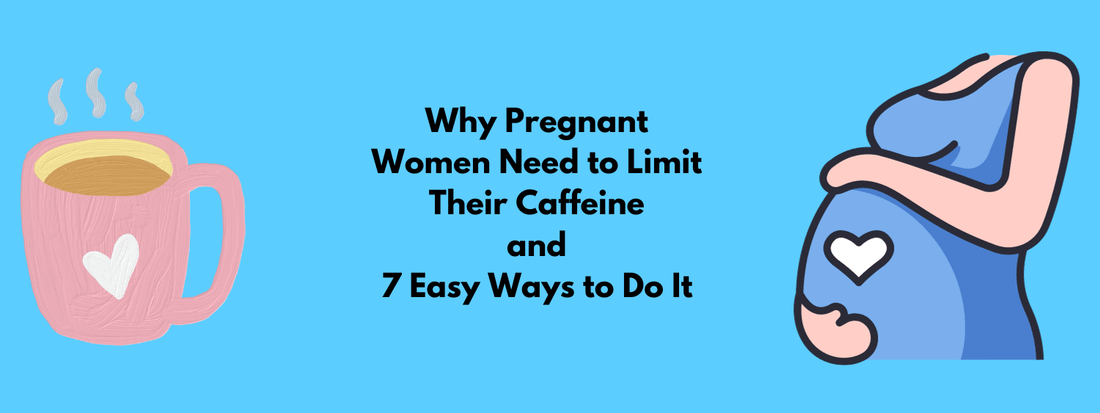
Why Pregnant Women Need to Limit Their Daily Caffeine Intake and 7 Easy Ways to Do It
Pregnancy is a time of great change and transformation, to say the least. Perhaps one of the greatest changes is going from carefree coffee consumption (YES pumpkin spice!) to having to monitor daily caffeine intake.
While coffee may have always been a harmless pick-me-up for most women, excessive caffeine consumption can have negative effects on both mom and baby. In this blog post, we'll explore why pregnant women need to limit their daily caffeine intake and provide some practical tips on how to do so.
Why Limit Caffeine During Pregnancy?
Caffeine is a stimulant that can cause an increase in heart rate, blood pressure, and alertness. These effects can be harmful to a developing fetus. High levels of caffeine consumption during pregnancy have been linked to several negative outcomes, including:
- Miscarriage: Studies have shown that high levels of caffeine consumption increase the risk of miscarriage, particularly in the early stages of pregnancy.
- Low birth weight: Infants born to mothers who consumed high amounts of caffeine during pregnancy tend to have lower birth weights.
- Sleep disturbances: Caffeine can disrupt sleep patterns and reduce the quality of sleep, which can negatively impact fetal development.
- Increased risk of gestational diabetes: Some studies suggest that high caffeine intake may increase the risk of gestational diabetes.
- Behavioral issues in children: Research suggests that exposure to high levels of caffeine in utero may lead to behavioral issues later on in children, including ADHD and anxiety.
How Much Caffeine Is Safe During Pregnancy?
The American College of Obstetricians and Gynecologists recommends that pregnant women limit their daily caffeine intake to 200 milligrams or less. For reference, an eight-ounce cup of brewed coffee typically contains around 100 milligrams of caffeine.
Ways to Limit Caffeine Intake
Reducing or eliminating caffeine from your daily routine may seem daunting (and a bummer), but there are several strategies to help you manage without becoming one tired zombie. Here are some practical tips to help pregnant women limit your caffeine intake:
- Gradually reduce your intake: If you're a heavy caffeine consumer, try gradually reducing your intake over a period of weeks. This will allow your body to adjust to the decrease in caffeine and minimize withdrawal symptoms.
- Try decaf coffee: Keep that delicious coffee taste but reduce your overall caffeine intake.
- Switch to a low-caffeine regime: Incorporate innovative solutions like Breakroom Labs Low-Caffeine Gummies into your day. Each one is rigorously tested for a controlled amount of low-caffeine.
- Get enough rest: Prioritize getting enough sleep to reduce your need for caffeine. Aim for seven to nine hours of sleep per night.
- Stay hydrated: Drink plenty of water throughout the day to avoid dehydration headaches, which can be mistaken for caffeine withdrawal headaches.
- Find healthy energy boosters: Engage in physical activities like walking, swimming, or prenatal yoga to boost your energy levels naturally.
- Read labels carefully: Check the ingredient label for caffeine content when purchasing packaged foods and drinks. Some unexpected sources of caffeine include chocolate, certain medications, and some energy drinks.
Conclusion
While cutting back on caffeine may be challenging, it's essential for ensuring a healthy pregnancy and baby. By gradually reducing your caffeine intake, switching to decaf or herbal alternatives, prioritizing rest and hydration, finding healthy energy boosters, and reading labels carefully, you can effectively manage your daily caffeine intake and give your baby the best possible start in life. Remember, every small change counts, and your little one will thank you for it.
